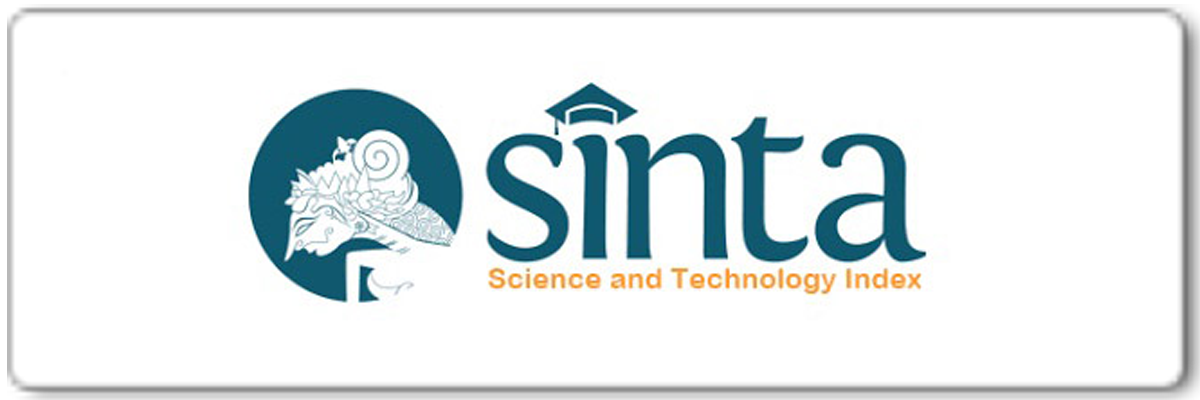An analysis of pedagogical factors influencing efl teachers’ instructional practices in the classroom
Abstract
Keywords
Full Text:
PDFReferences
Andrini, V. S. (2016). The Effectiveness of Inquiry Learning Method to Enhance Students’ Learning Outcome : A Theoritical and Empirical Review. Journal of Education and Practice, 7(3), 38–42.
Baecher, L., Rorimer, S., & Smith, L. (2012). Video-Mediated Teacher Collaborative Inquiry: Focus on English Language Learners. The High School Journal, 95(3), 49–61. https://doi.org/10.1353/hsj.2012.0007
Callander, D. (2013). Dialogic Approaches to Teaching and Learning in the Primary Grades. 1–122. https://dspace.library.uvic.ca/bitstream/handle/1828/5017/Callander_Deanna_MEd_2013.pdf?sequence=1
Choy, D., Wong, A. F. L., Lim, K. M., & Chong, S. (2013). Beginning Teachers’Perceptions of Their Pedagogical Knowledge and Skills in Teaching: A Three Year Study. Australian Journal of Teacher Education, 38(5), 68–79. https://doi.org/10.14221/ajte.2013v38n5.6
Dang, T. K. A., Nguyen, H. T. M., & Le, T. T. T. (2013). The Impacts of Globalisation on EFL Teacher Education through English as a Medium of Instruction: An Example from Vietnam. Current Issues in Language Planning, 14(1), 52–72. https://doi.org/10.1080/14664208.2013.780321
Darling-Hammond, L. (2017). Teacher Education around The World: What Can We Learn from International Practice? European Journal of Teacher Education, 40(3), 291–309. https://doi.org/10.1080/02619768.2017.1315399
Flecha, R., & Soler, M. (2013). Turning Difficulties into Possibilities: Engaging Roma Families and Students in School through Dialogic Learning. Cambridge Journal of Education, 43(4), 451–465. https://doi.org/10.1080/0305764X.2013.819068
G, H. (2022). English Teachers’ Pedagogical Competence in Regard to Understanding the Students. Language Circle: Journal of Language and Literature, 16(2), 321–331. https://doi.org/10.15294/lc.v16i2.34258
Ghavifekr, S., & Rosdy, W. A. W. (2015). Teaching and Learning with Technology: Effectiveness of ICT Integration in Schools. International Journal of Research in Education and Science, 1(2), 175–191. https://doi.org/10.21890/ijres.23596
Goh, P. S. C., & Wong, K. T. (2014). Beginning Teachers’ Conceptions of Competency: Implications to Educational Policy and Teacher Education in Malaysia. Educational Research for Policy and Practice, 13(1), 65–79. https://doi.org/10.1007/s10671-013-9147-3
Goodwin, A. L., & Kosnik, C. (2013). Quality Teacher Educators = Quality Teachers? Conceptualizing Essential Domains of Knowledge for Those Who Teach Teachers. Teacher Development, 17(3), 334–346. https://doi.org/10.1080/13664530.2013.813766
Kadarisma, G., Senjayawati, E., & Amelia, R. (2019). Pedagogical Content Knowledge Pre-Service Mathematics Teacher. Journal of Physics: Conference Series, 1315(1). https://doi.org/10.1088/1742-6596/1315/1/012068
Karim, A., Shahed, F. H., Mohamed, A. R., Rahman, M. M., & Ismail, S. A. M. M. (2019). Evaluation of the Teacher Education Programs in EFL Context: A Testimony of Student Teachers’ Perspective. International Journal of Instruction. https://doi.org/10.29333/iji.2019.1219a
Kutluturk, S., & Yumru, H. (2017). Cognitive and Metacognitive Strategy Training to Enhance Freshmen’s Reading Skills. International Journal of Language and Literature, 5(1), 7–15. https://doi.org/10.15640/ijll.v5n1a2
Nguyen, M. H. (2013). The Curriculum for English Language Teacher Education in Australian and Vietnamese Universities. Australian Journal of Teacher Education, 38(11), 33–53. https://doi.org/10.14221/ajte.2013v38n11.6
O’Conner, R., Abedi, J., & Tung, S. (2012). A Descriptive Analysis of Enrollment and Achievement among English Language Learner Students in Delaware. Issues & Answers. REL 2012-No. 132. http://search.proquest.com/docview/1018477669?accountid=13042 LA-English%5Cn
Orosco, M. J., & O’Connor, R. (2014). Culturally Responsive Instruction for English Language Learners with Learning Disabilities. Journal of Learning Disabilities, 47(6), 515–531. https://doi.org/10.1177/0022219413476553
Panev, V., & Barakoska, A. (2015). The Need of Strengthening the Pedagogical Competencies in Teaching from the English Teachers’ Perspective. International Journal of Cognitive Research in Science, Engineering and Education, 3(1), 43–50. https://doi.org/10.23947/2334-8496-2015-3-1-43-50
Şentürk, C., & Zeybek, G. (2019). Teaching-Learning Conceptions and Pedagogical Competence Perceptions of Teachers: A Correlational Research. Research in Pedagogy, 9(1), 65–80. https://doi.org/10.17810/2015.92
Susanto, R., & Rachmadtullah, R. (2019). Model of Pedagogic Competence Development: Emotional Intelligence and Instructional Communication Patterns. International Journal of Scientific and Technology Research, 8(10), 2358–2361.
Tremblay, A., Broersma, M., Coughlin, C. E., & Choi, J. (2016). Effects of the Native Language on the Learning of Fundamental Frequency in Second-Language Speech Segmentation. Frontiers in Psychology, 7(JUN), 1–15. https://doi.org/10.3389/fpsyg.2016.00985
VanTassel-Baska, J. (2012). Analyzing Differentiation in the Classroom. Gifted Child Today, 35(1), 42–48. https://doi.org/10.1177/1076217511427431
Wardoyo, C. (2015). The Measurement of Teacher’s Personality Competence and Performance Using Embedded Model. Journal of Education and Practice, 6(26), 18–24.
Yazan, B., & Peercy, M. M. (2016). TESOL Teacher Candidates’ Emotions and Identity Development. Teacher Education and Professional Development in TESOL: Global Perspectives, 53–67. https://doi.org/10.4324/9781315641263-3
Yook, C., & Lee, Y. hun. (2016). Korean EFL Teachers’ Perceptions of the Impact of EFL Teacher Education upon Their Classroom Teaching Practices. Asia-Pacific Journal of Teacher Education, 44(5), 522–536. https://doi.org/10.1080/1359866X.2016.1144171
Article Metrics
Abstract has been read : 215 timesPDF file viewed/downloaded: 0 times
DOI: http://doi.org/10.25273/etj.v11i1.15944
Refbacks
- There are currently no refbacks.
Copyright (c) 2023 Safa Marwaeni, Sri Kusuma Ningsih

This work is licensed under a Creative Commons Attribution-NonCommercial-ShareAlike 4.0 International License.
English Teaching Journal: A Journal of English Literature, Language and Education indexed by:
This work is licensed under a Creative Commons Attribution-NonCommercial-ShareAlike 4.0 International License.







